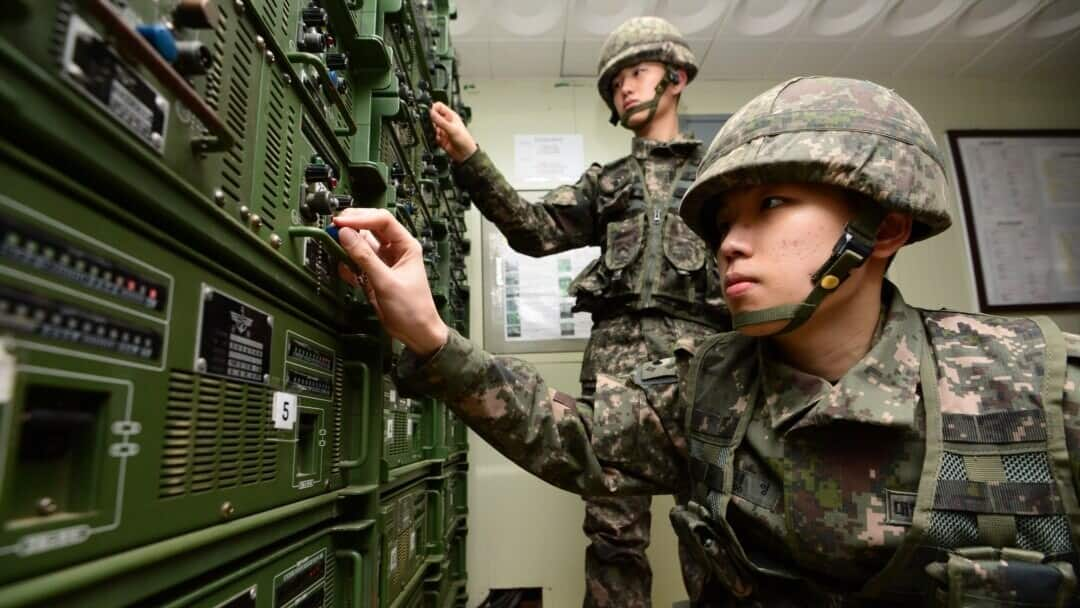
'Screams, eerie laughter...': North Korea's new weapons against South Korea
What's the story
South Korea's Ganghwa Island has been facing nightly disturbances from North Korea, which has been broadcasting unsettling noises across the border since July. The sounds, which are similar to a "low-budget horror movie" soundtrack, include gunshots, screams, and eerie laughter. The broadcasts are part of a broader campaign that marks deteriorating relations between the two Koreas.
Escalating tensions
North Korea's noise campaign intensifies, targets civilians
The broadcasts are aired nearly daily from speakers along the border, just two kilometers away from Ganghwa. They start at 11:00pm and feature battlefield screams, gunfire, explosions, and spine-chilling music. A local villager, Ahn Hyo-cheol, said unlike earlier propaganda which targeted political criticism or glorifying North Korea, the new broadcasts feature "wolf howling" and "ghostly sounds."
Health impact
Noise broadcasts nearly qualify as torture campaign
Ganghwa county councilor Park Heung-yeol said these broadcasts are intended to "torment people," not merely regime propaganda. Experts say the broadcasts almost amount to a torture campaign due to their effect on sleep deprivation. Rory Cox from the University of St Andrews said noise torture is common as it leaves no physical scars. Noise levels on Ganghwa have reached up to 80 decibels at night, surpassing the 60-decibel threshold known to cause sleep disorders.
Civilian distress
Residents suffer health issues due to noise broadcasts
Resident An Mi-hee complained of frequent headaches and anxiety from sleep deprivation due to the noise broadcasts. Even children on the island are affected, developing mouth sores and struggling to stay awake in school. In desperation, An traveled to Seoul to plead with lawmakers for help. The sound effects used in these broadcasts are described by sound engineer Hwang Kwon-ik as reminiscent of South Korean horror films from the 1970s and 80s.
Propaganda war
North Korea's broadcasts aim to mask South Korean propaganda
The two Koreas are technically still at war as their conflict ended in an armistice in 1953. North Korean leader Kim Jong Un has ramped up military activities this year and called Seoul his "principal enemy." Some experts think these broadcasts could be to prevent North Korean soldiers from listening to South Korean propaganda with K-pop songs. But audio production professor Lee Su-yong says if masking noise was the goal, it would have to be directed northward too.